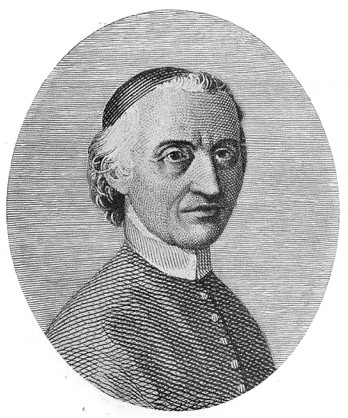Lessico
Egidio Forcellini

Filologo italiano (Campo, oppure Fener, frazioni di Alano di Piave (BL) 26 agosto 1688 - Padova 4 aprile 1768). Professore di retorica a Padova, fu autore del Lexicon totius latinitatis che, uscito postumo nel 1771, ebbe varie edizioni, l'ultima delle quali a cura di F. Corradini e G. Perin (1864-98).
Egidio Forcellini (1688-1768), Italian philologist, was born at Fener or at Campo, municipality of Alano di Piave in the district of Belluno, and belonged to a very poor family. He went to the seminary at Padua in 1704, studied under Facciolati, and in due course attained to the priesthood. From 1724 to 1730 he held the office of rector of the seminary at Ceneda, and from 1731 to 1765 that of father confessor in the seminary of Padua. The remaining years of his life were mainly spent in his native village.
He died at Padua in 1768 before the completion of the great work on which he had long co-operated with Facciolati. This was the vast Latin Lexicon, which has formed the basis of all similar works that have since been published. He was engaged with his Herculean task for nearly thirty-five years, and the transcription of the manuscript by Luigi Violato occupied eight years more.
Egidio Forcellini
Latin lexicographer, b. at Fener
or at Campo, municipality of Alano di Piave
in the district of Belluno,
Italy, 26 Aug., 1688; d. at Padua, 4 April, 1768. His
parents were poor, so that he was deprived of the opportunities of an early
education, and he was of mature age when in 1704 he entered the seminary at
Padua. There his ability and industry soon attracted the attention of his
teacher, Facciolati, who secured his assistance in his lexicographical work.
Forcellini collaborated with his master in revising the so-called "Calepinus",
the Latin dictionary, in seven languages, of the monk Ambrosius Calepinus![]() . While engaged in this
work, Forcellini is said to have conceived the idea of an entirely new Latin
lexicon, the most comprehensive ever compiled.
. While engaged in this
work, Forcellini is said to have conceived the idea of an entirely new Latin
lexicon, the most comprehensive ever compiled.
Towards the end of 1718, under the direction of Facciolati, he began the laborious task of reading through the entire body of Latin literature as well as the whole collection of inscriptions. His labours were interrupted in 1724, when he was called to Ceneda, where he became professor of rhetoric and director of the seminary. He resumed his work on the lexicon on his recall to Padua in 1731. It was not until three years after Forcellini's death that this great lexicon, on which he had spent nearly forty years of untiring industry, and which is the basis of all the Latin lexicons now in use, was published at Padua in four folio volumes under the title, "Totius Latinitatis Lexicon". In it are given both the Italian and the Greek equivalents of every word, together with copious citations from the literature. There is an English edition by Bailey in two volumes (London, 1828). The latest complete edition is that of De Vit (Prato, 1858-87).
Catholic Encyclopedia
Egidio Forcellini, philologue italien, né à Fener ou à Campo, municipalité de Alano di Piave dans la province de Bellune, en 1688, mort en 1768 à Padoue. Il fut l'élève de Jacopo Facciolati, et consacra toute sa vie à rédiger, d'après un plan arrêté de concert avec son maître, le savant dictionnaire latin, italien et grec intitulé: Totius latinitatis Lexicon, publié à Padoue en 1771, 4 volumes in-folio, réimprimé en 1805, augmenté d'un supplément en 1816, Padoue, 1 volume in-fol., réédité à Padoue, 1827-1837, 4 volumes in-4, par Giuseppe Furlanetto, qui y a fondu les suppléments et y a fait de nombreuses additions, et plusieurs fois réimprimé depuis, notamment à Venise et à Padoue, par Francisco Corradini, 1858-1860. Il renonça à la direction du séminaire de Bellune pour être tout entier à son Dictionnaire.